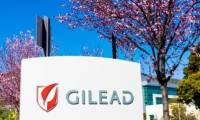-
【EXPERT Q&A】What does FDACFR21 in the United States refer to?
- Source: drugdu
- 159
- May 13, 2024
-
Outset Medical gets FDA nod for dialysis accessory months after halting sales
- Source: drugdu
- 82
- May 9, 2024
-
FDA Approves Two of Scientia Vascular’s Neurovascular Catheters
- Source: drugdu
- 80
- May 9, 2024
-
FDA Approves Azurity Pharmaceuticals’ Myhibbin as an Oral Suspension for Organ Transplant Recipients
- Source: drugdu
- 77
- May 8, 2024
-
Henlius Dual HER2 Blockade Therapy Receives Phase 3 MRCT IND Approval from U.S. FDA
- Source: drugdu
- 71
- May 8, 2024
-
【EXPERT Q&A】What is OTC? What products do FDA need to apply for OTC?
- Source: drugdu
- 157
- May 8, 2024
-
Abbott Earns FDA Approval For Dissolving Stent That Unclogs Arteries Below The Knee
- Source: drugdu
- 109
- May 5, 2024
-
Gilead expands FDA label for Biktarvy with Phase I pregnant HIV patient data
- Source: drugdu
- 81
- May 5, 2024
-
ClearPoint Neuro wins FDA clearance for neuro laser therapy accessory
- Source: https://www.massdevice.com/author/sean-whooley/
- 97
- May 4, 2024
-
FDA Approves Aquestive Therapeutics’ Libervant for the Treatment of Seizure Clusters in Children Aged 2 to 5 Years
- Source: https://www.pharmexec.com/authors/don-tracy-associate-editor
- 99
- May 4, 2024
your submission has already been received.
OK
Subscribe
Please enter a valid Email address!
Submit
The most relevant industry news & insight will be sent to you every two weeks.












